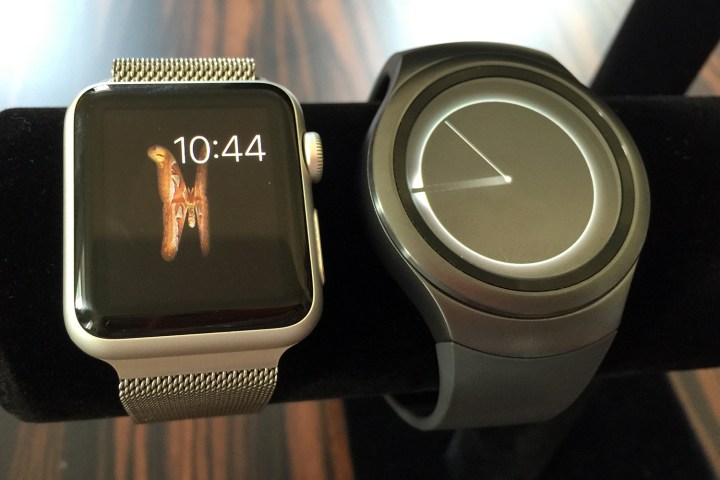
Samsung wants to change that. The company has come out with a new chip, called the Exynos 7 Dual 7270, which is built specifically for wearable devices and uses the 14 nanometer processor scale, instead of previous generations’ 28nm scale. What does that mean? Basically , the same tech can fit on a far smaller chip — a chip that can still handle Wi-Fi, Bluetooth, LTE, and GPS on a space of only 100 square millimeters.
Samsung also boasts that its chip is 20 percent more efficient than previous chips, making it more powerful. That’s an important thing to consider — as apps get more power-hungry, better processors will be required to power those apps, so simply making a chip smaller only solves one of the problems smartwatch manufacturers are encountering.
“The Exynos 7270 presents a new paradigm for system-on-chips (SoC) dedicated to wearables,” said Ben K. Hur, Samsung’s vice president of System LSI Marketing, in a blog post. “Designed on our state-of-the-art process technology, this AP [application processor] offers great power savings, 4G LTE modem, and full connectivity solution integration, as well as innovative packaging technology optimized for wearable devices.”
This probably won’t totally eliminate the balancing act that manufacturers have to perform between design and hardware — non-smart watches are still significantly thinner than their smart siblings, and it will likely be some time before that changes. That’s because even as manufacturers try to minimize the technology inside of the smartwatch, as they add more tech, like an LTE radio, a bigger battery is needed to power that tech.



